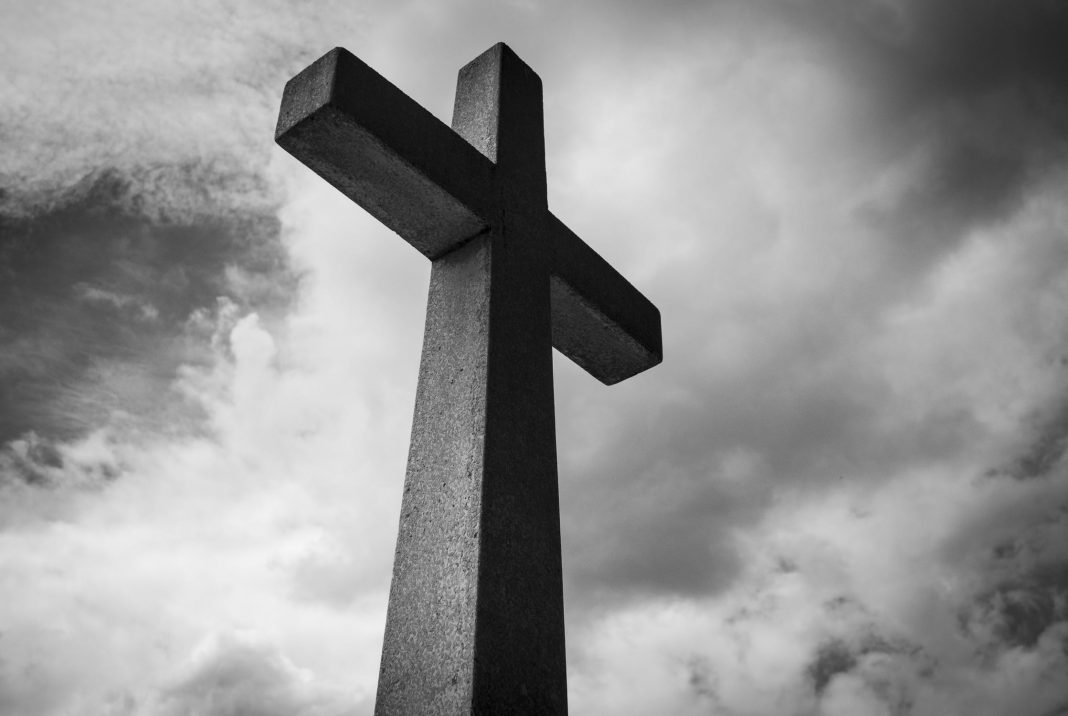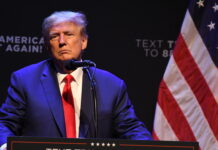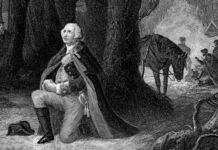A temporary restraining order was granted to On Fire Christian Center against Louisville Mayor Greg Fischer on Saturday, one day before Easter Sunday. It was granted by U.S. District Judge Justin Walker.
Louisville is enjoined from enforcing; attempting to enforce; threatening to enforce; or otherwise requiring compliances with any prohibition on drive-in church services at On Fire. The Court found that On Fire would suffer irreparable harm without the restraining order.
“The government plans to substantially burden their religious practices on one of the most important holidays of the Christian calendar, Easter Sunday,” the restraining order said.
Reading Walker’s opinion, he said on Holy Thursday, an American mayor “criminalized” the communal celebration of Easter.
“That sentence is one that this Court never expected to see outside the pages of a dystopian novel, or perhaps the pages of The Onion. But two days ago, citing the need for social distancing during the current pandemic, Louisville’s Mayor Greg Fischer ordered Christians not to attend Sunday services, even if they remained in their cars to worship — and even though it’s Easter.
“The mayor’s decision is stunning. And it is, ‘beyond all reason,’ unconstitutional.”
Walker wrote about the persecution of Christians and how it impacted the founding of America. And when the Founders explicitly stated Congress shall make no law respecting an establishment of religion, or prohibiting the free exercise thereof, it was clear what they had in mind.
“At the time of that Amendment’s ratification, religious liberty was among the American experiment’s most audacious guarantees. For millennia, soldiers had fought and killed to impose their religious doctrine on their neighbors. A century before America’s founding, in Germany alone, religious conflict took the lives of one out of every five men, women and children.
“But not so in America.”
Walker highlighted government telling the Supreme Court it could prohibit a church from choosing its own minister, force religious business owners to buy pharmaceuticals they consider abortion-inducing and conscript nuns to provide birth control. Even after the Supreme Court vacated lower court decisions, the Free Exercise Clause remains a too-often-tested bulwark against discrimination toward people of faith, from religious cakemakers to religious preschoolers, Fischer wrote.
“This state of affairs has severe implications for religious Americans, because ‘freedom means that all persons have the right to believe or strive to believe in a divine Creator and a divine law,'” he wrote. “But its importance extends beyond the liberty to worship. It threatens liberty of all kinds. That’s because, as de Tocqueville wrote, ‘religion, which among the Americans never directly takes part in the government of society, must be considered as the first of their political institutions; for if it does not give them the taste for liberty, it singularly facilitates use of it.'”
Fischer banned religious services four days earlier, even if congregants remained in their cars.
“It’s not really practical or safe to accommodate drive-up services taking place in our community,” the mayor said, while drive-through restaurants and liquor stores remain open.
Fischer’s spokesperson said he’d use the police to deter and disburse drive-in religious gatherings.
The mayor continued issuing threats on Good Friday:
“If there are gatherings on Sunday, Louisville Metro Police Department will be there on Sunday handing out information detailing the health risks involved, and I have asked LMPD to record license plates of all vehicles in attendance. We will share that information with our public health department so they can follow up with the individuals that are out in church and gatherings in groups, which is clearly a very, very unsafe practice.”
While the state does have powers in emergencies to curtail constitutional rights, it must ensure the measures are not “beyond all question, a plain, palpable invasion of rights secured by the fundamental law.”
According to Walker, Louisville is violating the Free Exercise Clause “beyond all question.”
“Louisville has targeted religious worship by prohibiting drive-in church services, while not prohibiting a multitude of other non-religious drive-ins and drive-throughs — including, for example, drive-through liquor stores.”
While Louisville might suggest On Fire members could participate in online services, which would satisfy their longing for communal celebrations, some members may not have access to online resources. And, even if they did, the Free Exercise Clause protects their right to worship as their conscience commands them.
“It is not the role of a court to tell religious believers what is and isn’t important to their religion, so long as their belief in the religious importance is sincere,” Walker wrote. “The Free Exercise Clause protects sincerely held religious beliefs that are at times not ‘acceptable, logical, consistent, or comprehensible to others.'”
Walker said while it is true that On Fire’s church members could believe in everything Easter teaches them from their homes on Sunday, but so too could the Pilgrims before they left Europe.
“But the Pilgrims demanded more than that. And so too does the Free Exercise Clause. It ‘guarantees the free exercise of religion, not just the right to inward belief.'”
Walker pointed to Kentucky’s Religious Freedom Restoration Act as well, which prohibits Louisville from “substantially burdening a person’s freedom of religion.”
Walker found that having to skip Easter Sunday would substantially burden On Fire’s members’ religious practice.
“For Christians, there is nothing minimal about celebrating Easter,” he wrote. “And for the reasons explained above, the Court does not doubt that for them, an online substitute for an in-person, in-the-car celebration is no substitute at all.”
Without the Court intervening, Walker wrote churchgoers would face an “impossible” choice — skip Easter Sunday service in violation of their sincere religious beliefs or risk arrest, mandatory quarantine or some other enforcement action for practicing those sincere religious beliefs.
“Unless a government action is far more narrowly tailored to a compelling government interest than in Louisville’s, that is a choice no one in our nation should ever have to face,” Walker wrote.
Walker wrote that some will agree with the Mayor, and some will agree with the Court. He said it is the job of a judge to explain his decision.
“The Christians of On Fire, however, owe no one an explanation for why they will gather together this Easter Sunday to celebrate what they believe to be a miracle and a mystery,” he wrote. “True, they can attempt to explain it. True, they can try to teach. But to the nonbeliever, the Passion of Jesus — the betrayals, the torture, the state-sponsored murder of God’s only Son, and the empty tomb on the third day — makes no sense at all. And even to the believer, or at least to some of them, it can be incomprehensible as well. But for the men and women of On Fire, Christ’s sacrifice isn’t about the logic of this world. Nor is their Easter Sunday celebration. The reason they will be there for each other and their Lord is the reason they believe He was and is there for us.
“For them, for all believers, ‘it isn’t a matter of reason; finally, it’s a matter of love.'”
















